Ionian Islands
- GRSailing
- Destinations
- Ionian Islands
In this westerly situation, with more rain than most other parts of Greece, the islands have a mild climate and lush growth of vegetation. Due to less severe winds than in other regions these islands form the perfect ground for a yacht charter holiday with kids or less experienced crew. Charter bases can be found in Preveza, Corfu and Lefkas.
There are traces of settlements on the Ionian Islands dating back to the Paleolithic period. Scientific opinion has concluded that the first inhabitants who appeared here came from the Peloponese. Homer’s epics provide valuable evidence regarding their first years of history. It appears that during the 8th century BC, for example, Greeks came to the Ionian from Euboia (Evia) and the Peloponese. Lefkada flourished especially during the archaic period (700-478 BC), while Kefalonia blossomed in the classical period (478-323 BC) when Corfu rose to being a strong naval power.
After the end of the Peloponnesian War, the leadership of Alexander the Great and Hellenistic period, came the Roman conquest. During the 9th-11th centuries AD, in the middle of the Byzantine Empire, the Ionian Islands took on an active role in combating pirates and the development of commerce between East and West. From the 14th century AD onwards the Ionian Islands came under the control of the Venetians. The Venetian domination of the islands left its strong mark both in terms of a strongly class differentiated society and through its development of commerce, the arts and crafts. By the end of the 18th century, with the breakdown of the Venetian democracy, the islands successively passed under French domination, then to the Russo-Turkish alliance, when the Ionian state was created, and finally to the British. On the 21st of May 1864 the Ionian Islands become incorporated within the modern Greek state.
Today the 7 Islands are cosmopolitan and popular with tourists and welcome a large number of them each year, thanks to the unequaled natural beauty and the friendly and hospitable locals. From Corfu till Zante, the Ionian Islands have kept their traditional colors and their character that can be seen even through the speech and pronunciation of the local people. These islands are known to be the birthplace of art and literature, and songs and serenades can be heard from every corner, and for those who have had a chance to visit them, they are sure to remain unforgettable.
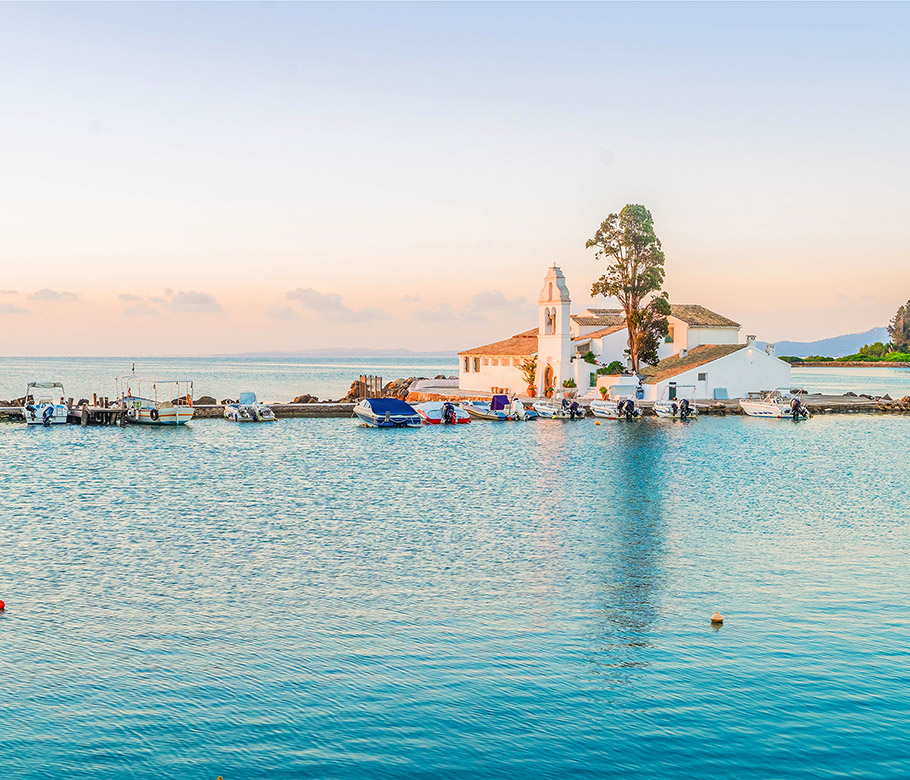
Corfu
Corfu is one of the most beautiful and green destinations which combines a populous east coast with many beaches and a wild west coast with cliff-faced inlets and coastlines. Opposite Corfu lies the Sivota islands with the village of Mourtos on the mainland in a pleasant wooded setting.
Paxi
Paxi is a beautiful destination with fine beaches at the east cost covered by endless olive trees. At the west coast there are wild cliffs with impressive caves. The channel formation of the harbour of Paxi is worth seeing. Antipaxi a smaller island south of Paxi is famous for the turquoise water and the sandy beaches.
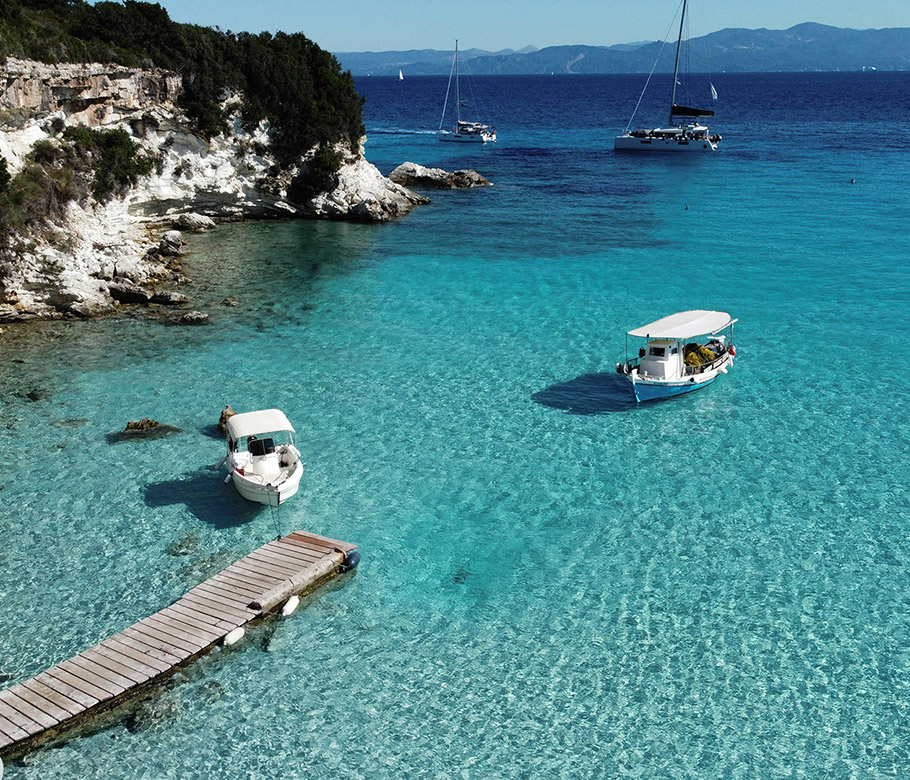
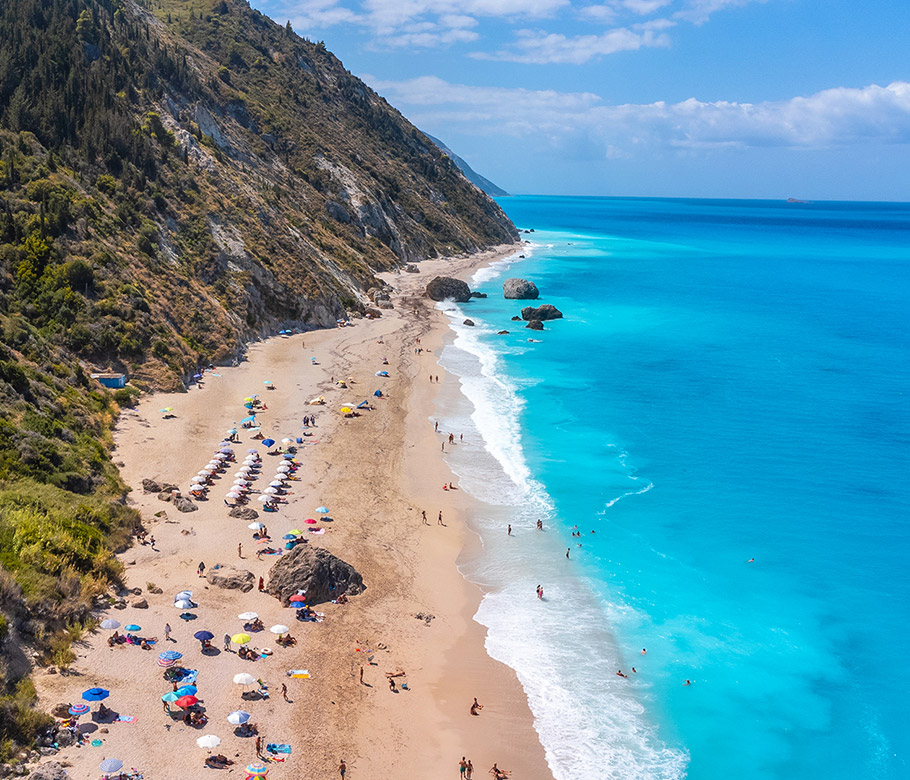
Lefkas
Lefkas is situated in the middle of the Ionian. To the south lies Onasis island Scorpios and the island of Meganisi. The strait between Meganisi and Lefkas is one of the loveliest channels in the Ionian. The area has a lot of wooded bays and nice fishing villages.
Ithaka
Ithaka is the famous island of Ulysses the hero of Homer. The west coast of the island is steep and almost barren in contrast to the green, gentle shoreline on the east. Ithaka has many interesting bays and villages like the main harbour Vathi, Frikes and the amphitheatric Kioni.
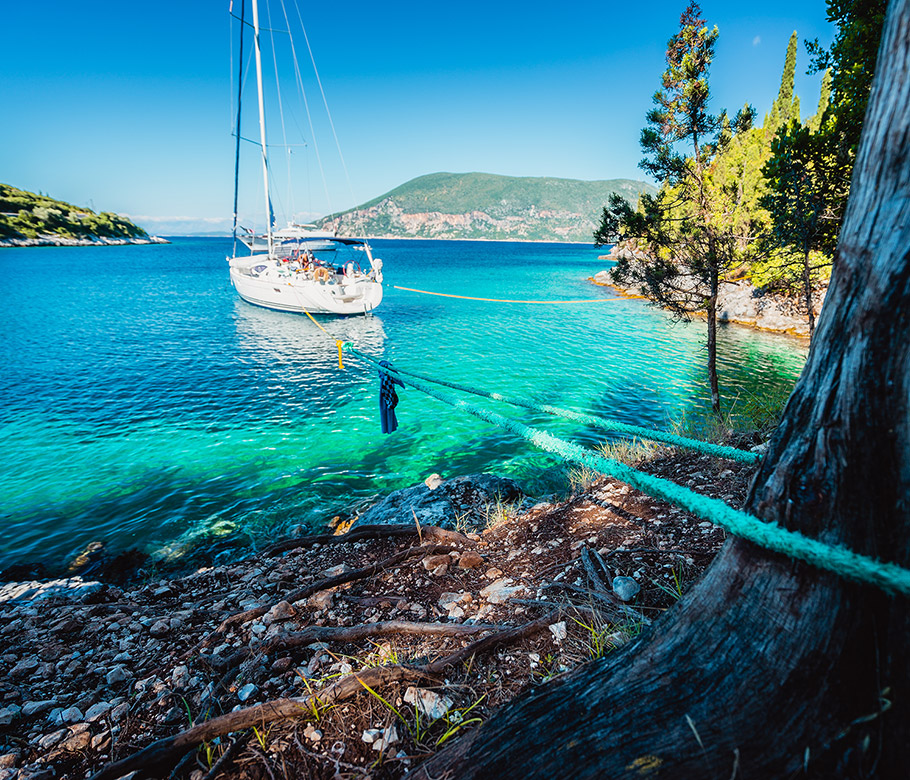
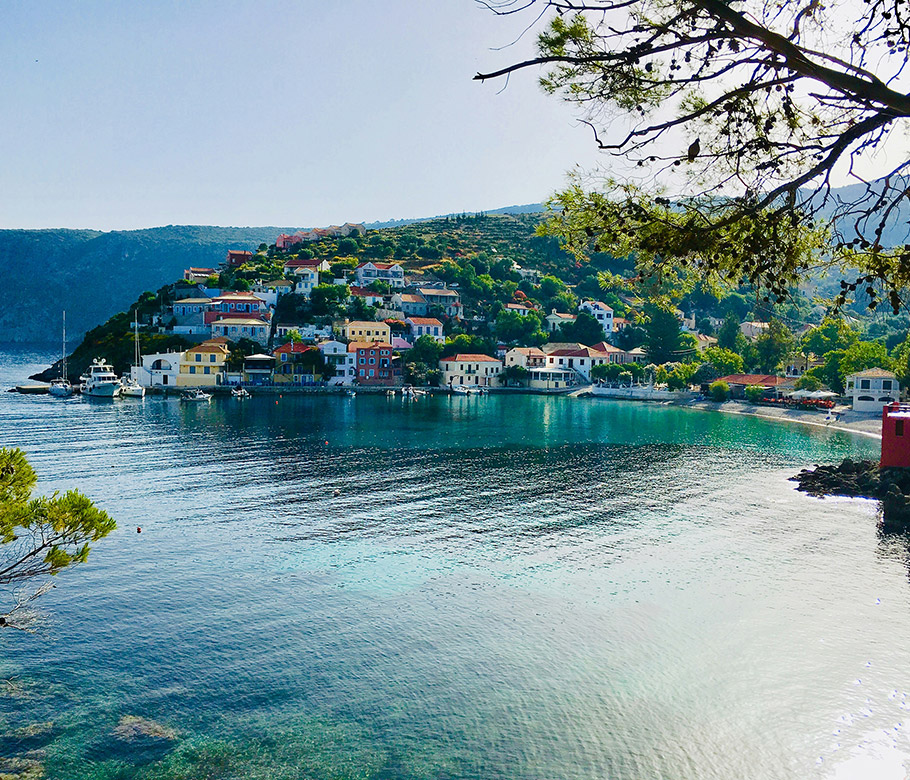
Cephalonia
Cephalonia is the largest and most mountainous island in the Ionian. There are bare rocky slopes alternating with valleys of pine forests. The Fiskardo town in the north entrance of the channel between Ithaka and Cephalonia is a popular spot for yachts.
Zakynthos
Zakynthos is the southernmost of the Ionian islands. It is a beautiful island distinguished by the emerald green of its sea, the pine-studded mountains and by beaches as far as the eye can see. The Venetians called Zakynthos “the flower of the Levant”.
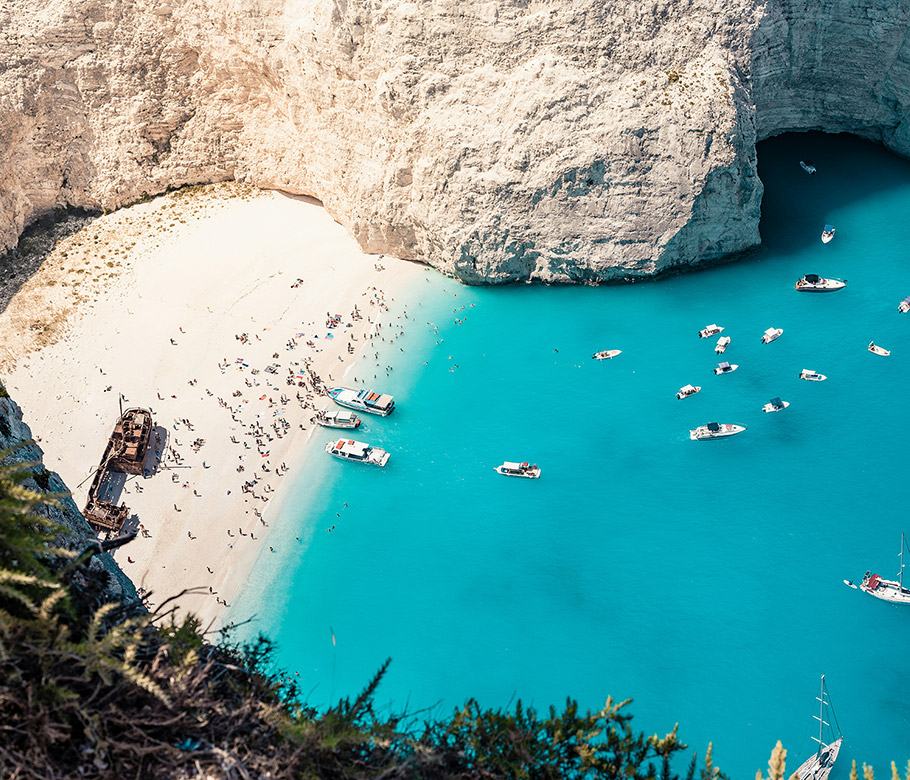
Sailing routes
- Marina Gouvia – Sivota (Mourtos)
- Sivota – Paxi
- Paxi – Antipaxi
- Antipaxi – Parga
- Parga – Corfu town
- Corfu town – Marina Gouvia
- Marina Gouvia – Parga
- Parga – Lefkas
- Lefkas – Nidri
- Nidri – Meganisi
- Meganisi – Ithaka
- Ithaka – Fiskardo (Kefalonia)
- Fiskardo – Kalamos
- Kalamos – Lefkas
- Lefkas – Antipaxi
- Antipaxi – Paxi
- Paxi – Sivota (Mourtos)
- Sivota – Corfu town
- Corfu town – Marina Gouvia
